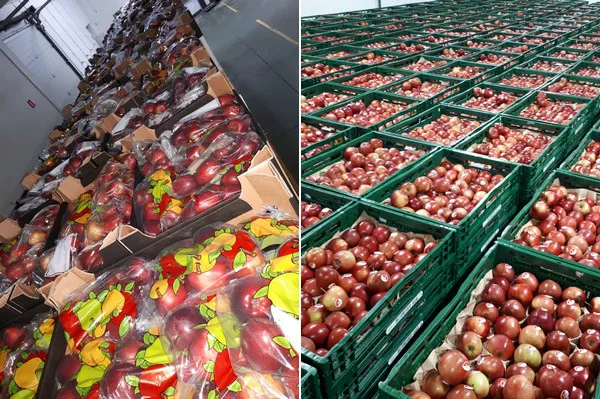The quality of the Polish apples has influenced the amount of countries the Polish exporters can sell their apples to, says Jakub Krawczyk, export manager for Polish apple exporter Appolonia: "I'm not going to lie, it's quite a rough season. There aren't too many apples that fulfil our quality standards, which is why we needed to review the list of countries that we're able to export to. And the list is shorter than it was last season. We don't want to have quality problems on arrivals and we don't want to put our customers in a position where they order apples of which we're not 100% sure about the quality. Not all apples will be accepted on arrival, so we need to be careful what we send out."

With the current situation, it's harder to procure the apples needed to fill up the stocks, Krawczyk explains. "Stocks are much lower than they were last year, but it all depends on the variety. For some of them, stocks are even 30 per cent lower compared to last year. Not every batch of apples is accepted by our Quality Control, that's why even if we have an option to buy apples, we're able to follow through on it, because these apples would be turned down by our end customers."
Despite demand being rather high, the current higher prices for Polish apples result in not all the markets being compatible, Krawczyk states: "There is a lot of demand from all over the world, but we're trying to choose only those options which have lower transit time and are safe in terms of payments. Unfortunately, for now we don't match many European countries with the price, so we still need to wait until something changes. Polish market chains are not doing too many promotions this season, so we also observe lower demand in the domestic market. Right now, we mostly export to some EU countries and South America. Sending to Asia is little risky and if customers decide to buy there, we inform them upfront about possible problems."

When looking at the quality. Krawczyk explains that the issues are mostly with the firmness of the apples. "All of the apples that we send far away need to be firm, 7+ is preferable, 6,5+ is still acceptable, everything that has less pressure needs to be accepted by the customer first, before we will transport it. There is no problem with colour or sugar levels, the problems are with firmness and cracks near the stem for the Gala variety. This season, many companies are looking for small red calibre apples like 60/70 mm, which are scarce."
Looking at the apples that remain in storage, the situation differs per variety, Krawczyk says. "Some growers are not willing to open their chambers to sell the Gala apples right now, because they are waiting for even better prices. However, will there be a better price? It's hard to say, in our opinion it's not likely, because the price we have right now already doesn't fit into many markets. We have great competition from other countries and after New Year, the South America market will be closed for us, due to the arrival of the Southern Hemisphere crop."

"We also think that waiting until January or February with Gala apples isn't a good idea, because the apples could have lost their firmness by then, leading to a lot of waste. But you know, everybody makes their own decision regarding when to open the cold chambers. For now, it isn't a problem to sell Gala, as long as it has good quality, but later on the season the situation could be a little tricky," Krawczyk concludes.
For more information:
Jakub Krawczyk
Appolonia
Tel: +48 785 342 930
Email: [email protected]
www.appolonia.pl
